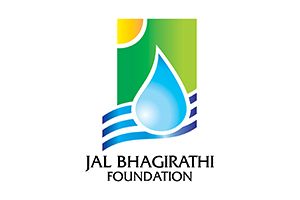Cause Area
Primary Sectors
Secondary Sectors
Geographies Served
Programs
-
Safe Water
StateStates
Rajasthan
Under a public-private-community partnership paradigm, JBF has piloted community-driven micro-level water enterprise initiatives to show how new technology and skill development can lead to safe drinking water solutions. In addition to guaranteeing the provision of clean drinking water, this project enhanced the villagers' self-help groups' (SHG) prospects for employment.
The campaign places a strong emphasis on empowering local communities to adopt suitable drinking water filtration technologies. Water purification plants and distribution networks can be operated and managed by entrepreneurs and community-based organizations like Jal Sabha.
-
Water for Schools
StateStates
Rajasthan
Helping schools build and maintain rooftop rainwater-harvesting systems to guarantee that kids have access to clean drinking water all year round. Indirectly, JBF entails collaborating with the community at large to build new rainwater gathering systems or revitalize existing ones to address water scarcity in rural areas. Children are freed from their household chore of getting water, which raises their enrollment and attendance rates in school. Jal Dal children's groups are set up to supervise the upkeep and management of school water-harvesting tankas, guaranteeing volunteerism and community service, and enabling kids to gain practical environmental knowledge while being exposed to regional water management customs.
Registration Details
-
PAN Card
AAATJ2932L
-
Registration Number
06/2002/JODHPUR
-
CSR Form 1
Not Available
-
80G
AAATJ2932LF20210
-
12A
AAATJ2932LE20022
-
FCRA
125610038
About
-
Headquarters
Jaipur, Rajasthan
-
Since
2002
Impact
550,000 beneficiaries with water security and sanitation. 500+ villages covered by programs 2000+ water harvesting structures revived 4000+ million litres harvested every year 2100+ homes equipped with toilets 100+ hectares of land reclaimed
Vision and Mission
JBF is driven by a vision of water security, sustained by responsive governance and inclusive growth, leading to sustainable development.
Political & Religious Declarations
-
Political Affiliation
-
Religious Affiliation
Location
-
Offices in Cities
Jodhpur
Other Details
-
Type
Non-profit
-
Sub Type
Trust
Website
Technology Adoption
-
SOC 2 Compliant
No
-
Financial Management
-
Beneficiary Management



